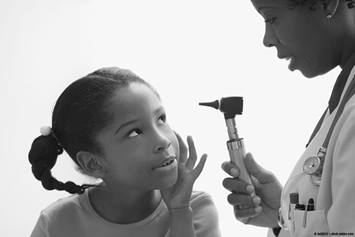Vocal Fold Nodules
Vocal fold nodules are small, hard bumps on your vocal cords. They make your voice sound hoarse and can hurt. Resting your voice helps them heal.
What Are Vocal Fold Nodules?
Vocal fold or vocal cord nodules are small, non-cancerous growths on your child’s vocal cords. They are often caused by voice abuse. Over time, your child’s repeated misuse of the vocal folds results in soft, swollen spots on each vocal fold. The longer vocal abuse continues, the more likely these spots are to become harder and enlarged, like callouses.
What Are Some Common Causes of Vocal Fold Nodules?
- Too much yelling or loud talking
- Making funny noises with the voice
- Talking over loud noises
- Crying excessively
- Talking in a pitch that is too low or too high
- Straining to talk
- Excessive singing
- GERD (Gastroesophageal Reflux Disease)
- Allergies
- Drinking liquids that contain caffeine (dries out vocal cords)
When Should I Be Concerned if My Child Has Vocal Fold Nodules?
Vocal fold nodules often affect the quality of the voice. The voice may sound hoarse or harsh, rough, breathy, or scratchy. Some children may experience vocal fatigue and the voice may sound worse at the end of the day. The child may present with a decreased pitch range and may complain of throat pain.
How Are Vocal Fold Nodules Evaluated?
A laryngoscopy is a test usually done by an Otolaryngologist. A flexible tube is inserted through the nose or a rigid scope through the mouth, where the vocal cords are viewed as they open and close. This type of examination can assess for causes of breathing difficulties, voice changes/disorders, or feeding/swallowing problems. It is recommended that a child not eat for approximately 30 minutes prior to this test; however this is not required. There are no restrictions following the completion of this procedure. A videostroboscopy (flashing light) may also be used to watch the vocal cords as they move.
Functional voice assessments are also completed by a Speech-Language Pathologist. The voice assessments measure and rate the quality of the voice compared to same age peers. The voice assessments consist of having the child speak into a microphone and having the caregiver complete a voice rating form.
What Is the Treatment for Vocal Fold Nodules?
Speech-language pathologists offer therapy for vocal fold nodules. This includes teaching good vocal hygiene, stopping vocal abuses and treatment to change pitch, loudness or breath support for good voicing. Medical problems such as gastroesophageal reflux (GERD), allergies and thyroid conditions may also need to be treated. People who have these nodules need to stay away from smoke and known allergens as much as possible. They must also avoid straining their voice by such activities as cheerleading or yelling on the playground.
If your child needs voice therapy he should follow the advice of his therapists. If vocal fold nodules continue to get worse, surgery may be needed. Surgery involves removing the nodule from the vocal fold. If vocal abuse continues after surgery, there is a risk that the nodules will return. When more surgeries are needed, there is a higher risk of permanent damage to the vocal fold.
If you have any questions, be sure to ask your doctor, nurse, or therapist.



